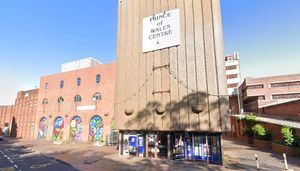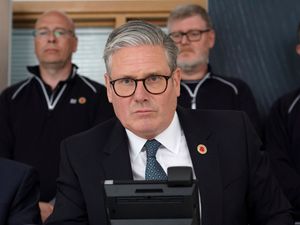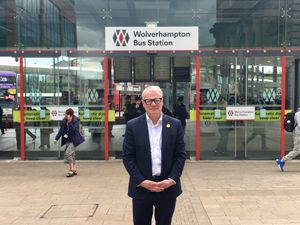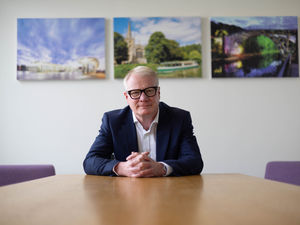Petitions presented to save Cannock museum and theatre as talks take place on their future
Community groups have been in talks with Cannock Chase Council’s leader in a bid to keep a theatre and museum open – and petitions campaigning against the proposed closures have been submitted to the authority.
Watch more of our videos on ShotsTV.com
and on Freeview 262 or Freely 565
More than 20,000 people backed the petition against the proposed closure of Cannock’s Prince of Wales Theatre, while the campaign to save the Museum of Cannock Chase in Hednesford received almost 3,000 signatures.

Both petitions were presented to Cannock Chase Council at its full meeting on Wednesday (January 22). They were launched after the council announced it was considering shutting both venues as part of a bid to close a £1.3m budget gap.
Councillor Darrell Mawle, who presented the theatre petition at Wednesday’s meeting, said: “The Prince of Wales Theatre has been a longstanding, successful and loved venue within Cannock town centre for 40 years which includes audience members, performers which includes professional artistes, local amateur dramatics groups, musicians, children’s performing arts schools, dance schools and local educational establishments, not to mention the staff members and wonderful volunteers who have given years of dedication to the venue.
“Members of the public were asked to sign the petition if they felt the decision to close the theatre would leave no venue for amateur dramatic societies in the district to use and experience the joy of performing, displace children’s dance schools and performance groups, negatively impact tourism and income for the local businesses in the town centre, enforce redundancies on dedicated theatre staff, impact the mental health and wellbeing of users of the venue, go against the initial Levelling Up bid produced by the council and remove the theatre as a great champion for culture and arts in the district.”
Councillor Andrea Muckley, who presented the museum petition, said: “For almost 40 years, the museum has been a valued community space and resource for all; it connects people with their heritage and 300 years of history. The museum sits on the former site of the Valley Colliery that opened 150 years ago (and) it encompasses the Mines Training Centre that saw the education of over 17,000 miners; it is the last remaining link to Cannock Chase’s mining heritage.

“The museum has collected and safeguarded not only our industrial history but our social history, presenting and preserving the stories of people past and present – of those people who worked to create and shape our communities, and of the people who continue to do so. Many current and former residents have made donations of personal items on the understanding that they would be cared for and preserved for the people of Cannock Chase – this important collection is at risk of being lost.”
More than 2,100 people took part in a public consultation on the future of culture and heritage services which was launched in late November. And this week it was revealed that council leader Tony Johnson has been leading talks with district groups that are considering taking on the theatre and museum.
The groups are expected to put forward business cases to run the two venues. The council has offered to fund expert advice to support their proposals, as well as looking at how Government funding can be used to help with upgrades needed to the theatre building if a viable case can be made for it to keep running.
Councillor Johnson said: “We encouraged people to share their views and said we would listen to any suggestions and ideas that would allow us to preserve our museum and theatre offer. It is from that feedback that we have had people and groups come forward with initiatives and we are hopeful they will provide us with a sound business case for how both services to the public can continue.”
At Wednesday’s meeting he responded to six questions put forward by members of the public on matters relating to the running of the theatre and museum and decommissioning of the services if the decision was made to close them. These included two questions from Ben Farbrother on use of funds.
The theatre was set to be refurbished as part of the ambitious town centre regeneration project being part-funded by a £20m Government Levelling Up grant. And it was already due to close temporarily at the end of April to enable regeneration work to take place
Mr Farbrother said: “We have been consistently informed by council representatives that LUF (Levelling Up) funding cannot be allocated to address major works required at the PoW (Prince of Wales Theatre), as identified in the stock survey report, on the grounds that such works are classified as revenue expenditure. We believe that the nature of the activities involved, which includes significant structural improvements to ensure the extended the life of the building and its functional capacity, is aligned with the characteristics of capital expenditure.
“Councillors have publicly provided repeated reassurances that the PoW has not been removed from scope for the remaining LUF money. Given that central government has granted an extension to when LUF money has to be spent, will the council commit to revisiting their assertion and re-assess how items of work, or packages of work, identified in the stock condition survey can be re-submitted as legitimate capital spend eligible for LUF money, and if not, why not?”
Councillor Johnson responded: “The Levelling Up funding can only be used for capital works, not revenue. Capital works need to relate to wider improvements and refurbishment.
“Using the roof as an example, repairing and maintaining this would be classed as revenue expenditure. We cannot use Levelling Up Funding for this – however if the roof was to be replaced and upgraded with solar panels, this could be classed as capital expenditure and Levelling Up funding could be used for this.”





